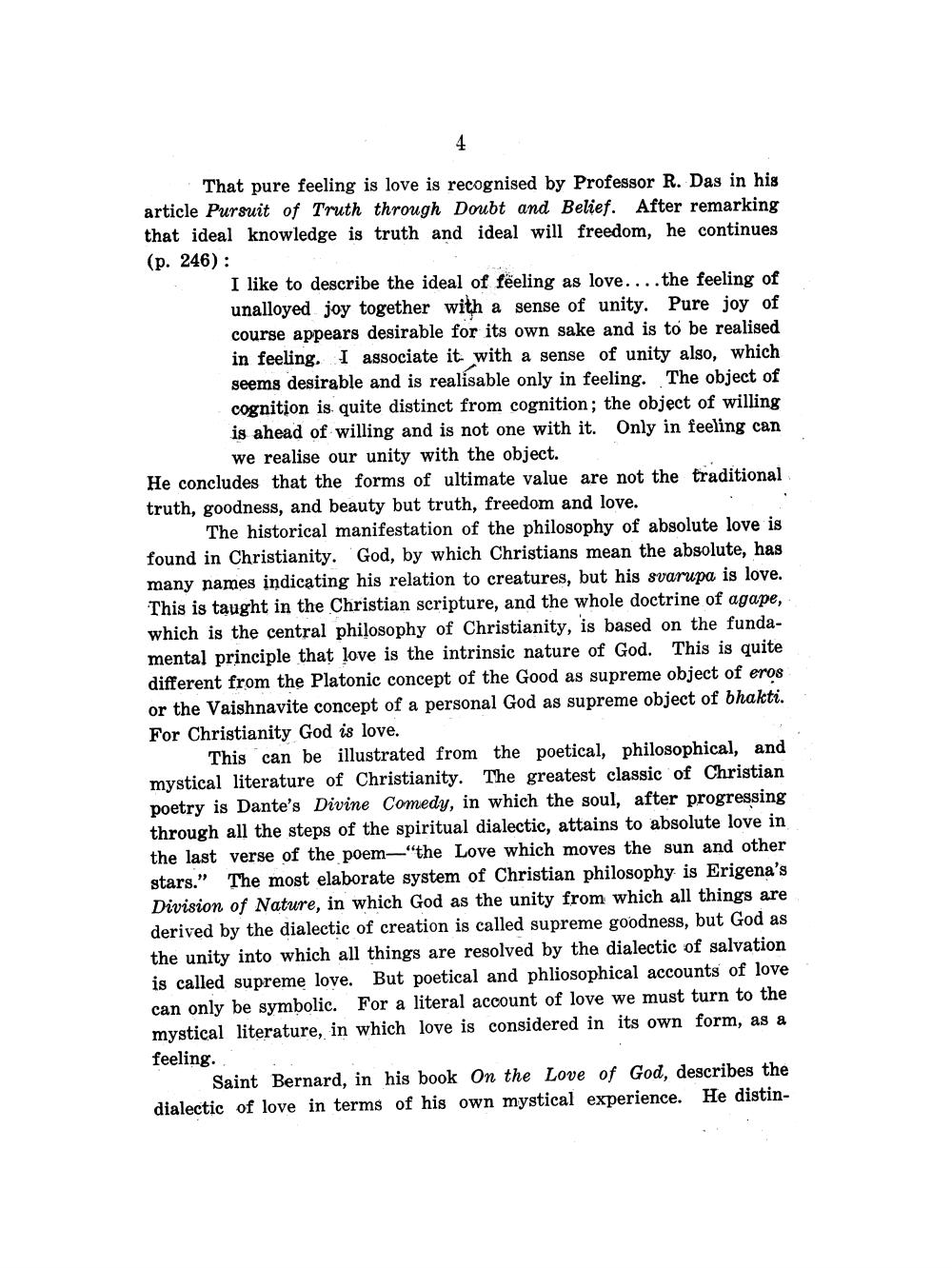Book Title: Absolute Feeling Author(s): Georg Burch Publisher: Georg Burch View full book textPage 4
________________ 4 That pure feeling is love is recognised by Professor R. Das in his article Pursuit of Truth through Doubt and Belief. After remarking that ideal knowledge is truth and ideal will freedom, he continues (p. 246): I like to describe the ideal of feeling as love....the feeling of unalloyed joy together with a sense of unity. Pure joy of course appears desirable for its own sake and is to be realised in feeling. I associate it with a sense of unity also, which seems desirable and is realísable only in feeling. The object of cognition is quite distinct from cognition; the object of willing is ahead of willing and is not one with it. Only in feeling can we realise our unity with the object. He concludes that the forms of ultimate value are not the traditional truth, goodness, and beauty but truth, freedom and love. The historical manifestation of the philosophy of absolute love is found in Christianity. God, by which Christians mean the absolute, has many names indicating his relation to creatures, but his svarupa is love. This is taught in the Christian scripture, and the whole doctrine of agape, which is the central philosophy of Christianity, is based on the fundamental principle that love is the intrinsic nature of God. This is quite different from the Platonic concept of the Good as supreme object of eros or the Vaishnavite concept of a personal God as supreme object of bhakti. For Christianity God is love. This can be illustrated from the poetical, philosophical, and mystical literature of Christianity. The greatest classic of Christian poetry is Dante's Divine Comedy, in which the soul, after progressing through all the steps of the spiritual dialectic, attains to absolute love in the last verse of the poem-"the Love which moves the sun and other stars." The most elaborate system of Christian philosophy is Erigena's Division of Nature, in which God as the unity from which all things are derived by the dialectic of creation is called supreme goodness, but God as the unity into which all things are resolved by the dialectic of salvation is called supreme love. But poetical and phliosophical accounts of love can only be symbolic. For a literal account of love we must turn to the mystical literature, in which love is considered in its own form, as a feeling. Saint Bernard, in his book On the Love of God, describes the dialectic of love in terms of his own mystical experience. He distinPage Navigation
1 2 3 4 5 6
